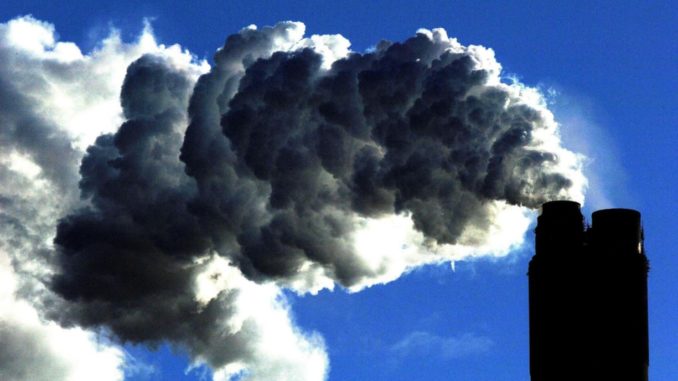
Government unveils phase-out plan, with one of eight remaining power stations to stop generating electricity this year
The closure of the last coal plant in seven years’ time will be mandated through the use of a new emissions performance standard. Photograph: John Giles/PA
One of the UK’s eight remaining coal power stations is expected to cease generating electricity this year, the government has said as it laid out new rules that will force all the plants to close by 2025.
The coal phase-out is one of the Conservative party’s flagship green policies, and the long-awaited implementation plan comes ahead of a speech by Theresa May on the environment next week.
While three plants shut in 2016, and most are expected to halt operations by 2022, the last ones standing will be forced to close in October 2025 because of new pollution standards.
However, the plan reveals the sector will continue to be propped up by hundreds of millions of pounds in backup power subsidies for several years, paid through consumer energy bills.
Experts said allowing coal operators to continue receiving capacity market subsidies had thrown the sector an unnecessary lifeline.
Dr Jonathan Marshall, energy analyst at the Energy and Climate Intelligence Unit, a UK-based thinktank, said: “While delivering on the top line of a 2025 closure, the government’s decision to allow coal plants to compete in the capacity market on equal footing until then looks like something of a missed opportunity.”
Ministers will also retain emergency powers to suspend the phase-out in the case of an emergency shortfall in electricity supplies.
“We consider it prudent for the secretary of state to retain provisions to act in emergency situations, as a last resort, where there might be a shortfall in electricity generation, or risk of one, and that suspension would wholly or partially mitigate that risk,” the Department for Business, Energy and Industrial Strategy said.
But officials said it was unlikely those powers would be called on, because the gap created by the coal plants’ closure would probably be filled by old gas power stations staying open longer.
While no coal power stations closed in 2017, the government’s official assessment points out that a carbon tax and relatively low gas prices have hurt the profitability of coal plants.
As a result, it foresees one major plant will close this year, with the loss of up to 250 jobs, followed by a further closure next year. The government predicts coal’s capacity of 13.8GW last year will have plummeted to 1.5GW by 2025 because of unfavourable economics.
The government rejected calls by campaigners and industry groups for the deadline of 2025 to be brought forward, citing cost and energy security grounds. It also rebuffed suggestions of a gradual phase-out before 2025, arguing coal use was low enough to make that unnecessary.
Coal’s fall has been swift and dramatic, with power generation from the polluting fuel plunging by more than 80% since 2012.
Plants have closed in recent years as EU pollution standards started to bite, but it was increases in the UK’s carbon tax that sealed their fate. In the budget, the Treasury confirmed the levy would continue at the same level until 2025.
The standard sets a limit on the amount of carbon the plants can emit – 450g CO2 per kW hour – which coal operators could meet only by retrofitting costly carbon capture equipment.
Officials said the coal phase-out policy would cost less than 1% of an average household energy bill.
Green groups welcomed the confirmation of the plan. Greenpeace hailed “significant progress on making coal history in the birthplace of the industrial revolution”, while WWF praised government for “hitting this dirty industry where it hurts.”
However, ClientEarth cautioned against replacing coal with another fossil fuel. “We are concerned that the door is left wide open for investments in new, long-term gas capacity, locking us into another generation of fossil fuel power,” said Sam Bright, energy lawyer at the campaigning law firm.
Labour said while it backed the coal phase-out, more support was needed for clean power. Alan Whitehead, shadow energy minister, said: “The government’s lacklustre support for renewables and scrappage of a number of green schemes has left it on course to miss its own climate targets.”
Source: https://www.theguardian.com/business/2018/jan/05/uk-coal-fired-power-plants-close-2025
Visits: 1




Be the first to comment